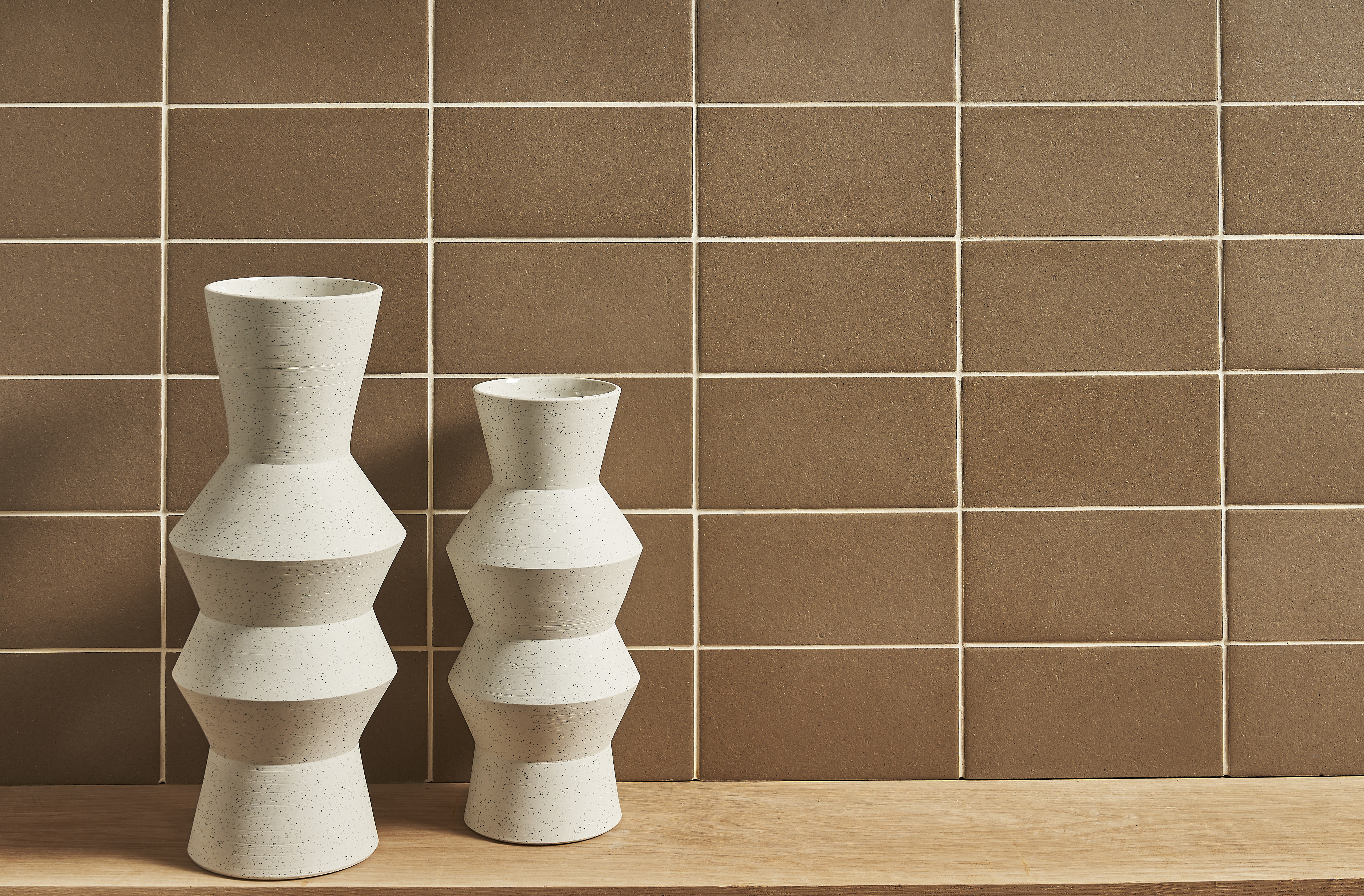Profile: Alusid
By now, it’s plain to see that we have a waste problem, not least in the construction industry, which is said to produce 62% of the UK’s waste alone. We need seismic, yet focused changes throughout the industry. But how do you even begin to go about tackling the pressing problem of, say, the many tonnes of ceramic and glass waste generated by foundation industry factories?
That was the very specific but prescient question posed by Professor David Binns and Dr Alasdair Bremner when commencing their research project while working at the University of Lancashire.
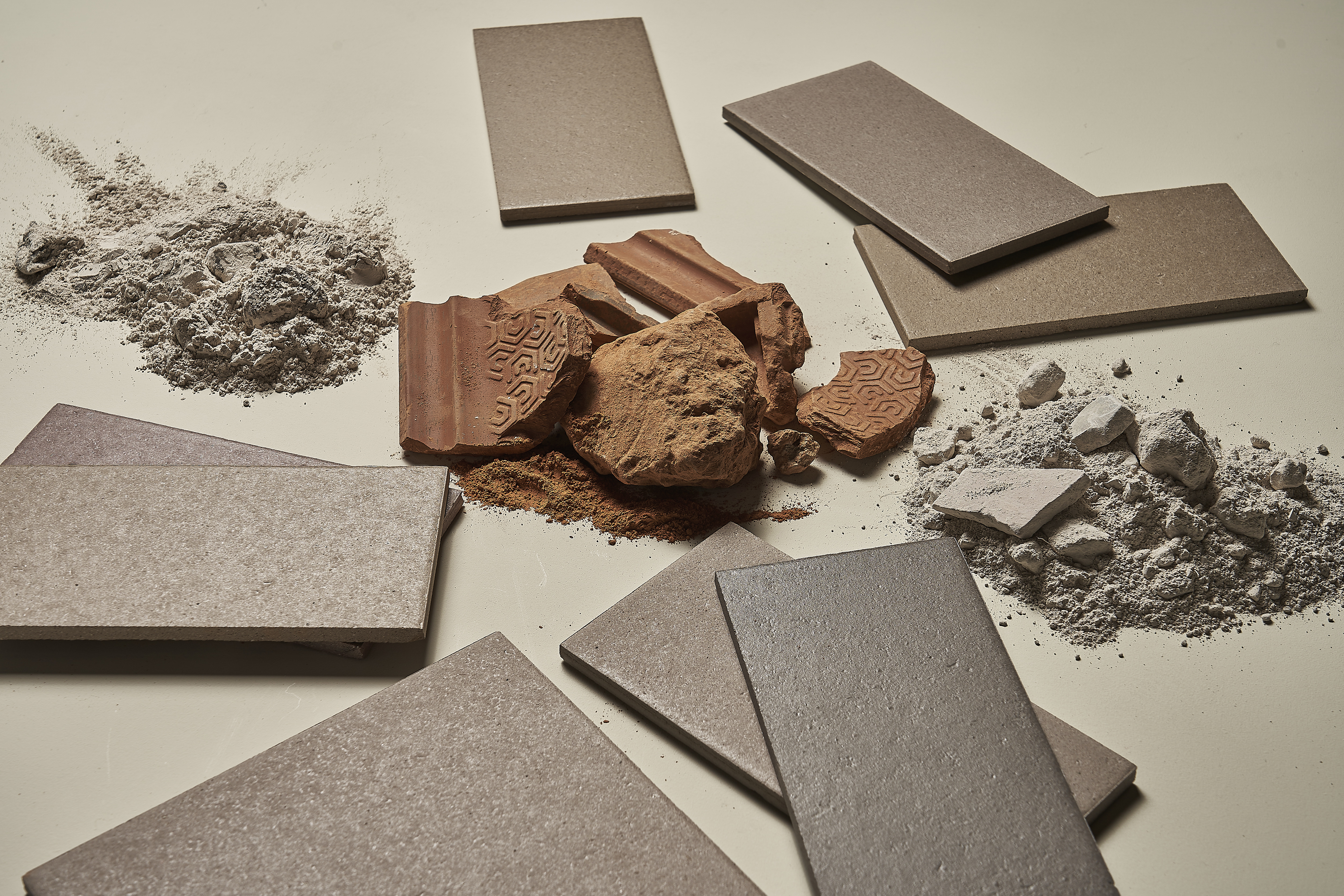
Their work led to the development of a pioneering material, Silicastone, which repurposes industrial waste streams, capturing their embodied energy to create new, low-carbon architectural surfaces. From here, Alusid was born, and the company has continued to extend its research, develop new surfaces, and pioneer even more sustainable manufacturing processes ever since. The product portfolio now includes eight tile ranges, including Mas, which is made from between 95-98.5% recycled content.
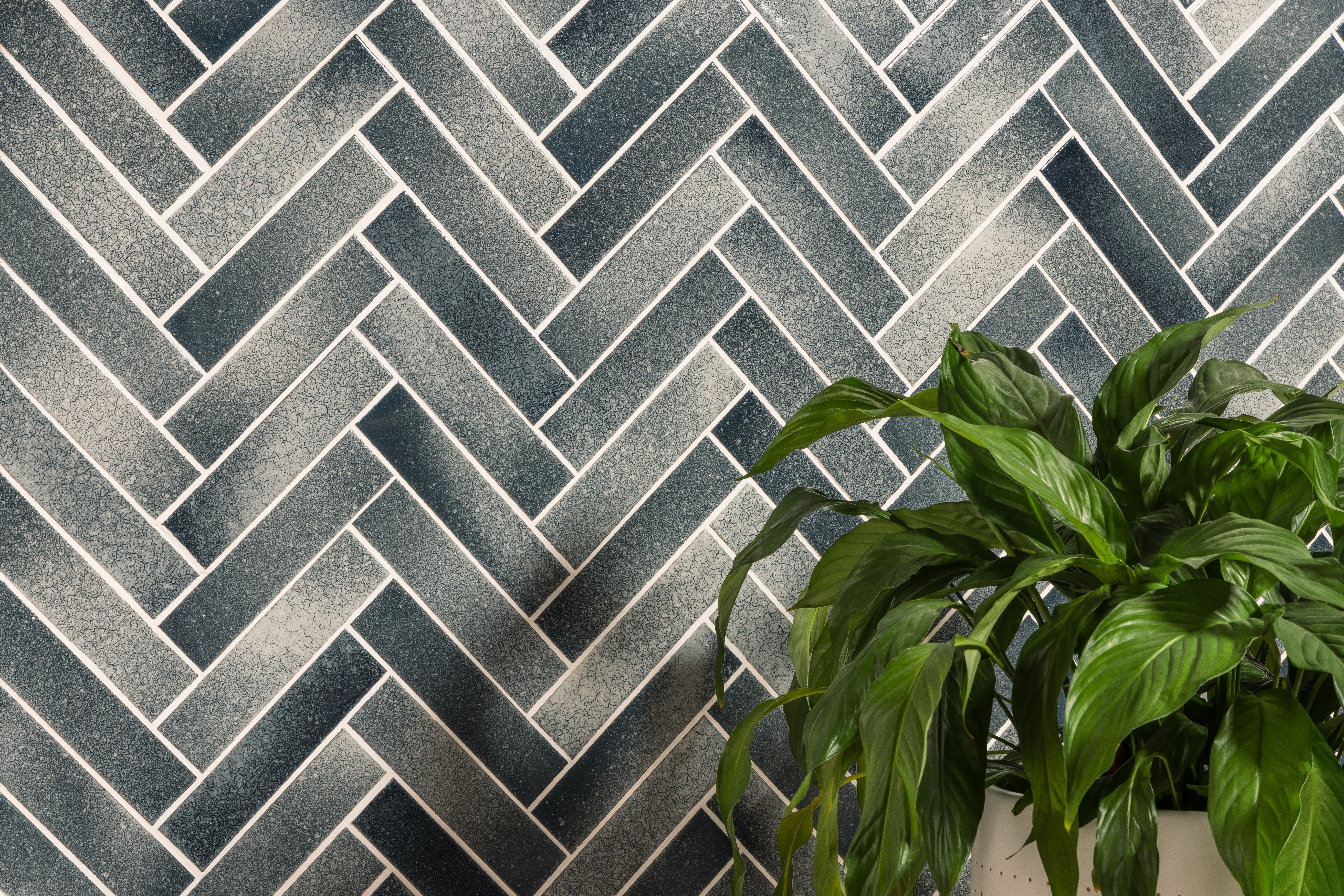
One of the benefits of the process the team has developed is that the raw materials have already been processed by other industries. This allowed a key technological breakthrough: Alusid’s dry granulation process, which eliminates water use during a key stage of tile production. This approach avoids the need to add large amounts of water and regrind virgin raw materials that the traditional spray drying process requires. These ‘standard’ methods need to be dried using energy-intensive methods—often consuming nearly as much energy as firing the tiles themselves at over 1,200°C. Whereas Alusid’s dry granulation process allows for a low-temperature sintering method, cutting energy consumption and carbon emissions, and making Alusid’s tiles among the lowest carbon options available.
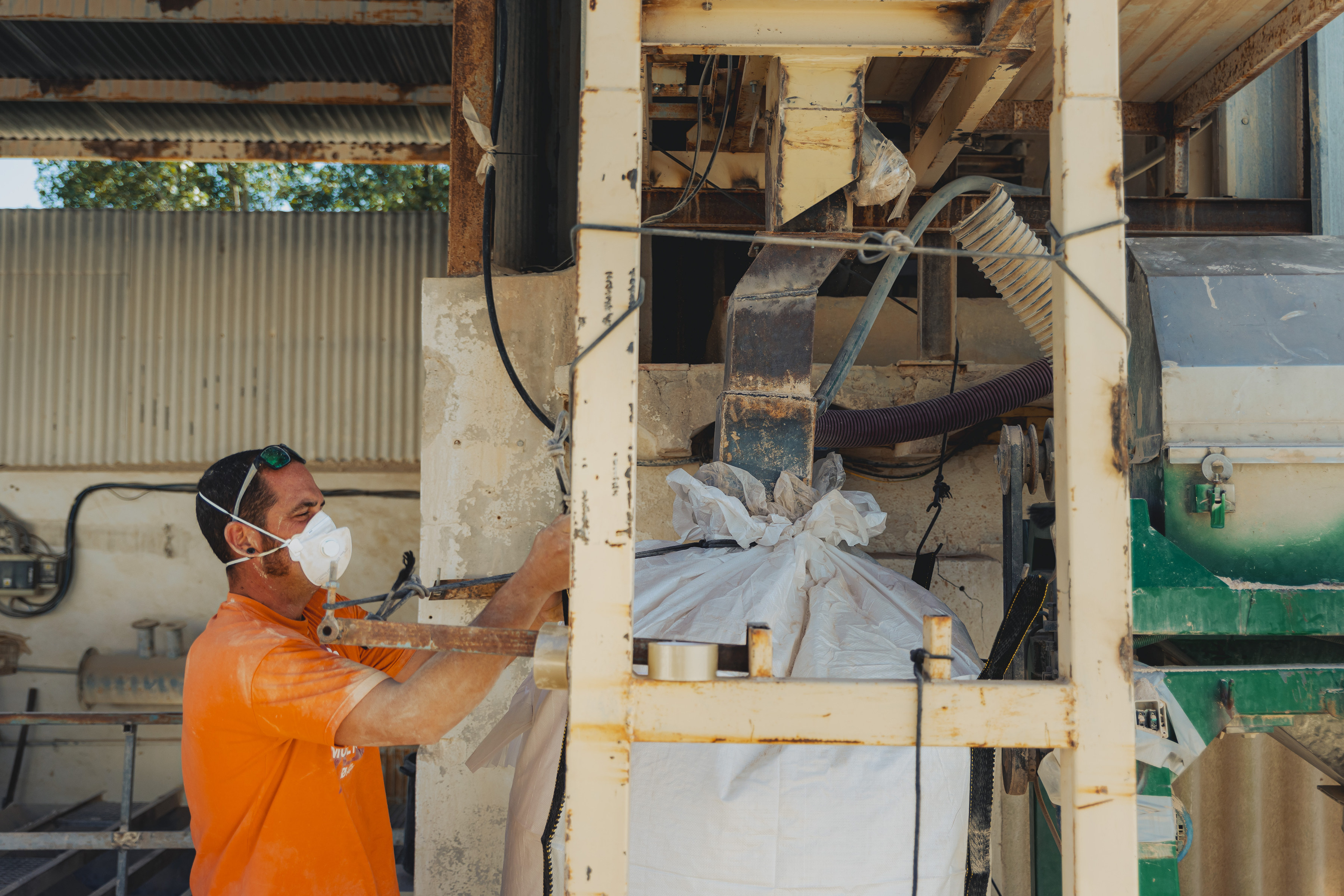
As the company and the portfolio have expanded with demand, so has the need for greater volumes of materials, as Alaisdair explains, “While Alusid started with a hyper-local approach to sourcing materials, it was clear from the start that to make a wider impact and to supply large, ambitious commercial projects, it would require volume production.” In 2019, the team opened a research program to adapt the production of its materials to existing lines in Spain, where approximately a third of all the tiles sold in the UK are made, and where there are literally mountains of waste material. While many of those original tiles may have used a global supply chain to bring raw materials such as Feldspar, Ball Clay and Kaolin into the country, Alusid gathers and recycles materials within a 100km radius of its Spanish sub-contracted factories.
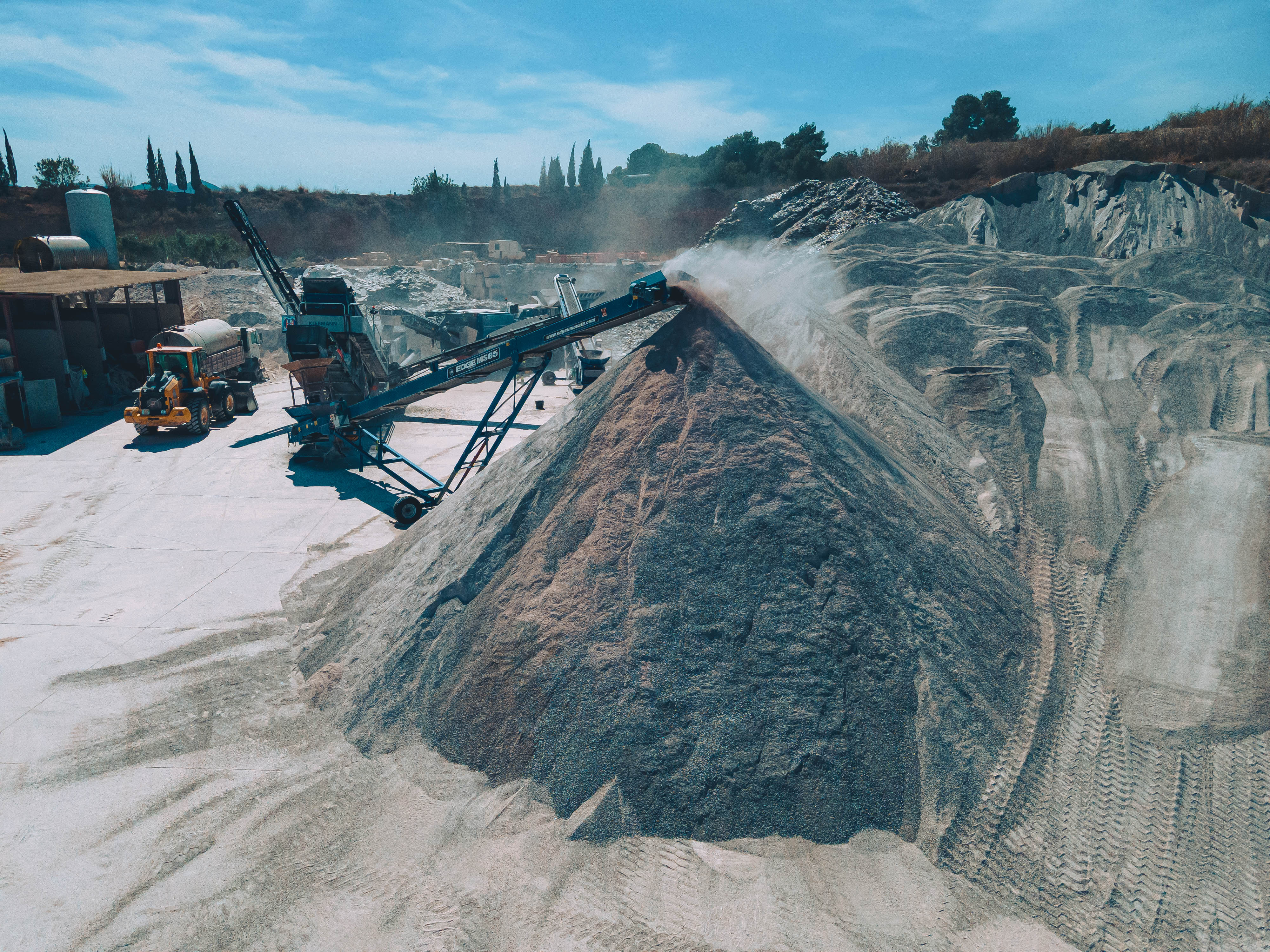
But Alusid’s appeal comes not only from the materials it recycles, and the reduction of carbon they create, but also from the way those materials influence the final design. Alusid products have a unique aesthetic that is informed by the recycling process itself; the different sizes of particles, leftover glaze and glass in the raw materials give each tile unique textures, colour differences and finishes. The resulting material palette is rich in tactility, character, and colour, defying uniformity and alluding to a deeper material narrative.
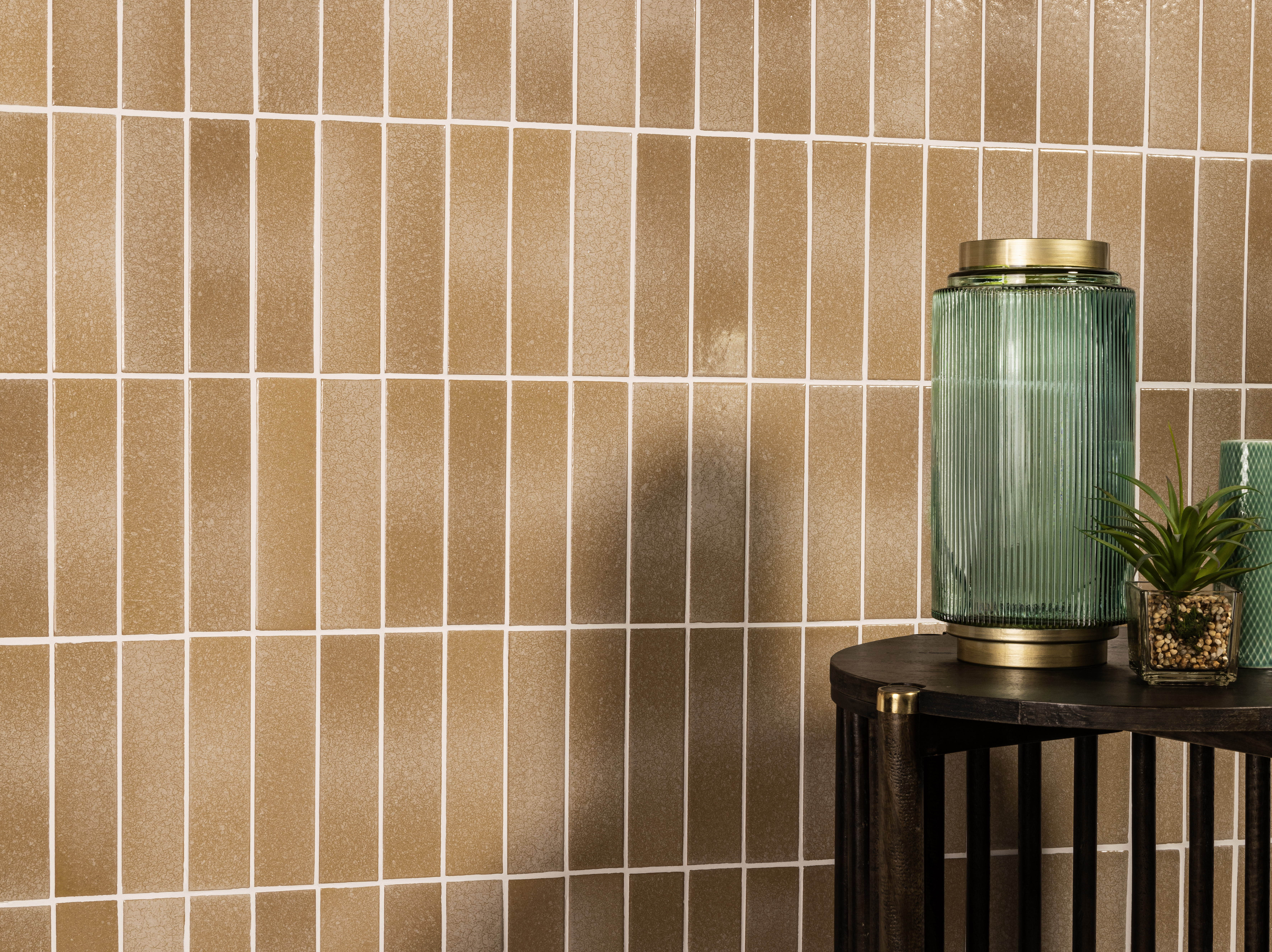
Having started with a simple yet determined idea for positive change, the team has since entered strategic partnerships with Parkside Tiles and the Topps Group, taking them from artisan to commercial scale production. But what remains is a commitment to tackling waste, cutting carbon emissions, and reducing waste usage, and with it, lowering the environmental impact of the ceramic industry.

